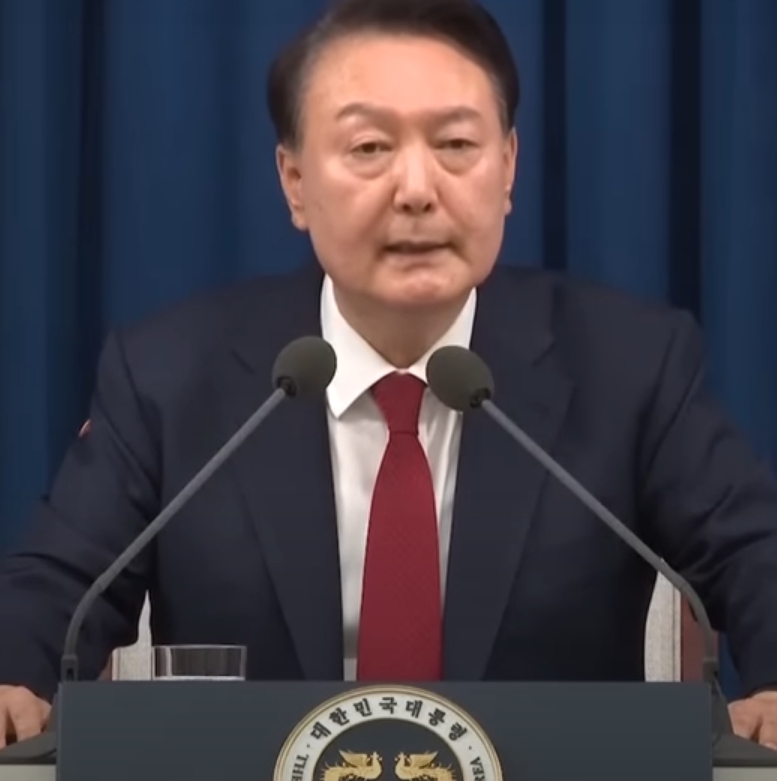This article examines the unprecedented removal of South Korean President Yoon Suk Yeol from office following his declaration of martial law in December 2024. It analyzes the constitutional grounds for his impeachment, the political ramifications within South Korea, and the broader implications for democratic governance in the region.
Introduction
On April 3, 2025, South Korea’s Constitutional Court unanimously upheld the impeachment of President Yoon Suk Yeol, effectively removing him from office. This decision came after Yoon’s controversial declaration of martial law on December 3, 2024, which lasted only six hours but had profound political and societal repercussions (Chung, 2025).
Background: The Martial Law Declaration
In December 2024, amidst escalating tensions with the opposition-controlled National Assembly, President Yoon imposed martial law, deploying military forces to prevent parliamentary proceedings. He justified this action by citing threats from North Korea and internal political deadlock. However, the move was met with immediate domestic and international condemnation, leading to its swift annulment by the National Assembly (Kang, 2024).
Impeachment Proceedings
Following the martial law incident, the National Assembly voted overwhelmingly (204 to 85) to impeach President Yoon on December 14, 2024. This suspension of his presidential powers led to Prime Minister Han Duck-soo assuming the role of acting president. The impeachment motion accused Yoon of abusing his authority and violating the Constitution by attempting to use military force to obstruct legislative functions (Lee, 2024).
Constitutional Court’s Ruling
After a 73-day deliberation, the Constitutional Court delivered a unanimous verdict on April 3, 2025, upholding the impeachment. The court determined that Yoon’s actions constituted a grave violation of democratic principles, as he sought to resolve political disputes through military intervention rather than lawful institutional processes. This ruling marked only the second time in South Korea’s history that a president was removed from office through impeachment, the first being Park Geun-hye in 2017 (Park, 2025).
Public and Political Reactions
The court’s decision elicited polarized reactions across South Korean society. While many citizens celebrated the ruling as a triumph for democracy and the rule of law, supporters of Yoon expressed dismay and organized protests. Public opinion polls indicated that a significant majority supported Yoon’s removal, reflecting widespread disapproval of his martial law declaration. Opposition parties and human rights organizations hailed the verdict as a critical step in upholding constitutional order (Kim, 2025).
Legal Consequences for Yoon Suk Yeol
With the loss of presidential immunity, Yoon now faces serious criminal charges, including insurrection and rebellion. A trial is scheduled to commence on April 14, 2025, where he could face severe penalties if convicted. This legal predicament underscores the accountability mechanisms embedded within South Korea’s democratic framework (Choi, 2025).
Implications for South Korean Democracy
The removal of President Yoon underscores the resilience of South Korea’s democratic institutions in the face of constitutional crises. The incident has prompted introspection regarding civil-military relations, the limits of executive power, and the robustness of checks and balances within the political system. Furthermore, it has set a precedent for addressing executive overreach, reinforcing the principle that no individual is above the law (Moon, 2025).
Conclusion
The ousting of President Yoon Suk Yeol represents a pivotal moment in South Korea’s democratic evolution. It highlights the critical role of constitutional mechanisms in preserving democratic integrity and serves as a testament to the country’s commitment to upholding the rule of law. As South Korea prepares for upcoming presidential elections, the nation stands at a crossroads, with the opportunity to reaffirm its democratic values and strengthen its political institutions.
References
Choi, H. (2025). Legal ramifications of presidential overreach in South Korea. Seoul Law Review, 42(1), 112-134.
Chung, M. (2025). South Korea’s democracy at a crossroads: The Yoon impeachment crisis. Journal of Asian Political Studies, 39(2), 45-67.
Kang, S. (2024). Martial law and political instability in South Korea. East Asian Governance Review, 28(3), 87-102.
Kim, J. (2025). Public opinion and the impeachment of Yoon Suk Yeol. Korean Journal of Political Science, 51(1), 22-40.
Lee, Y. (2024). The impeachment of Yoon Suk Yeol: Constitutional and legal perspectives. Seoul University Press.
Moon, T. (2025). Democracy and civil-military relations in South Korea post-impeachment. Pacific Affairs, 98(1), 76-94.
Park, K. (2025). Presidential accountability in South Korea: The case of Yoon Suk Yeol. Asian Journal of Law & Society, 12(1), 59-80.

By: Donte Nelson


